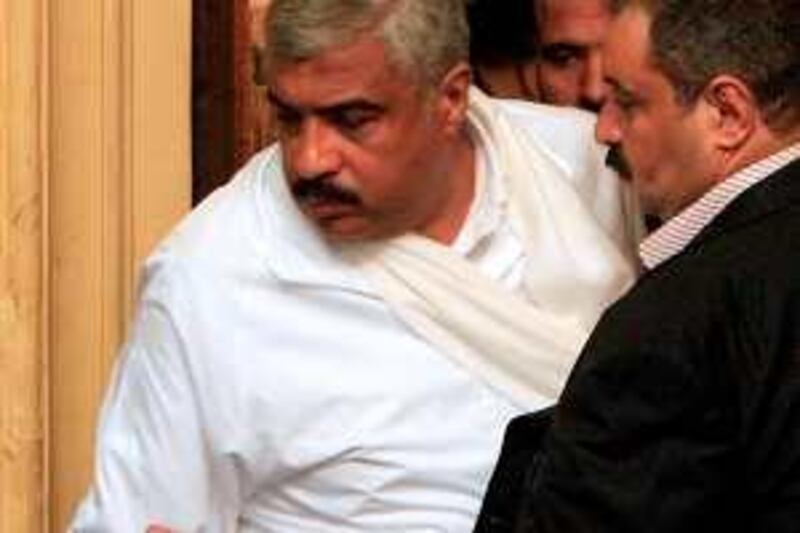CAIRO // The two Egyptian men sentenced to death for killing the Lebanese singer Suzanne Tamim will lodge an appeal next month, their lawyers said yesterday. "We've been waiting for the reasoning to base our appeal on," said Mohammed Abu Shaqqa, a lawyer for Hisham Talaat Moustafa.
His client is a 49-year-old property tycoon and senior member of Egypt's ruling party who was found guilty of paying Mohsen el Sokari, 40, a former state security officer, US$2million (Dh7.3m) to kill Tamim. Both men were sentenced to death on June 25. The 30-year-old singer was found dead on July 28 last year, at the entrance to her apartment at the Rimal complex in Jumeirah Beach Residence in Dubai. She was lying in a pool of blood with her throat slit and her body bruised.
Muhammadi Qonsowa, the head of the judging panel, submitted their reasoning of the death sentence on Saturday, in 203 hand-written pages, to Egypt's prosecution, which gave copies to the lawyers. Anis el-Manawi, one of el Sokari's lawyers, also said they would lodge an appeal, which must be submitted by August 25. A successful appeal would lead to a retrial with different judges. Appeals are usually accepted in death sentences, which are carried out by hanging in Egypt.
The reasoning, a copy of which has been obtained by The National, said the men were "two devils who conspired to kill a weak woman using all low dubious illegal means". It continued: "Mohsen el Sokari used his physical power and malicious intelligence in killing the victim, while Hisham Talaat Moustafa sentenced the victim to death without a court or defence, making use of the first defendant's obsessive love of money, and used his power, influence and contacts to keep her for himself; when he failed, he planned to take revenge by ordering her killing."
It also mentioned that Egypt's mufti, Sheikh Ali Gomaa, had approved the death sentence, in accordance with the law. "The court found no reason to have mercy on the defendants and decided to execute them unanimously," the document added. The case, which began on October 18, gripped the attention of Egyptians and Arabs everywhere. From mid-November until the trial ended on March 18, Judge Qonsowa banned publication of the proceedings of the trial.
However, journalists were allowed to attend all the sessions, and to to see all the evidence presented in court. They watched videos submitted by Dubai police, showing el Sokari on surveillance cameras entering the singer's building during the hour in which forensic doctors said she was killed. @Email:nmagd@thenational.ae





